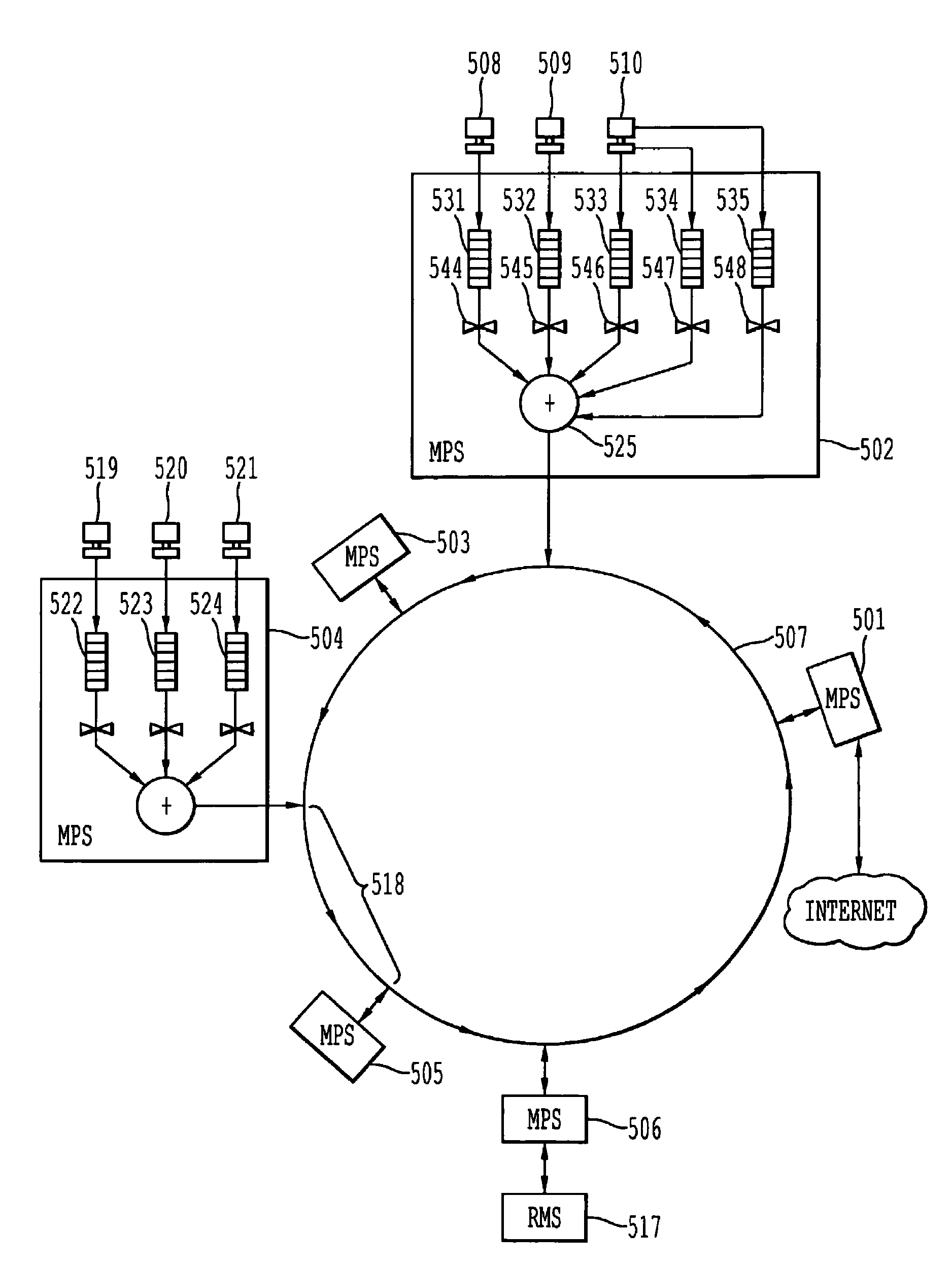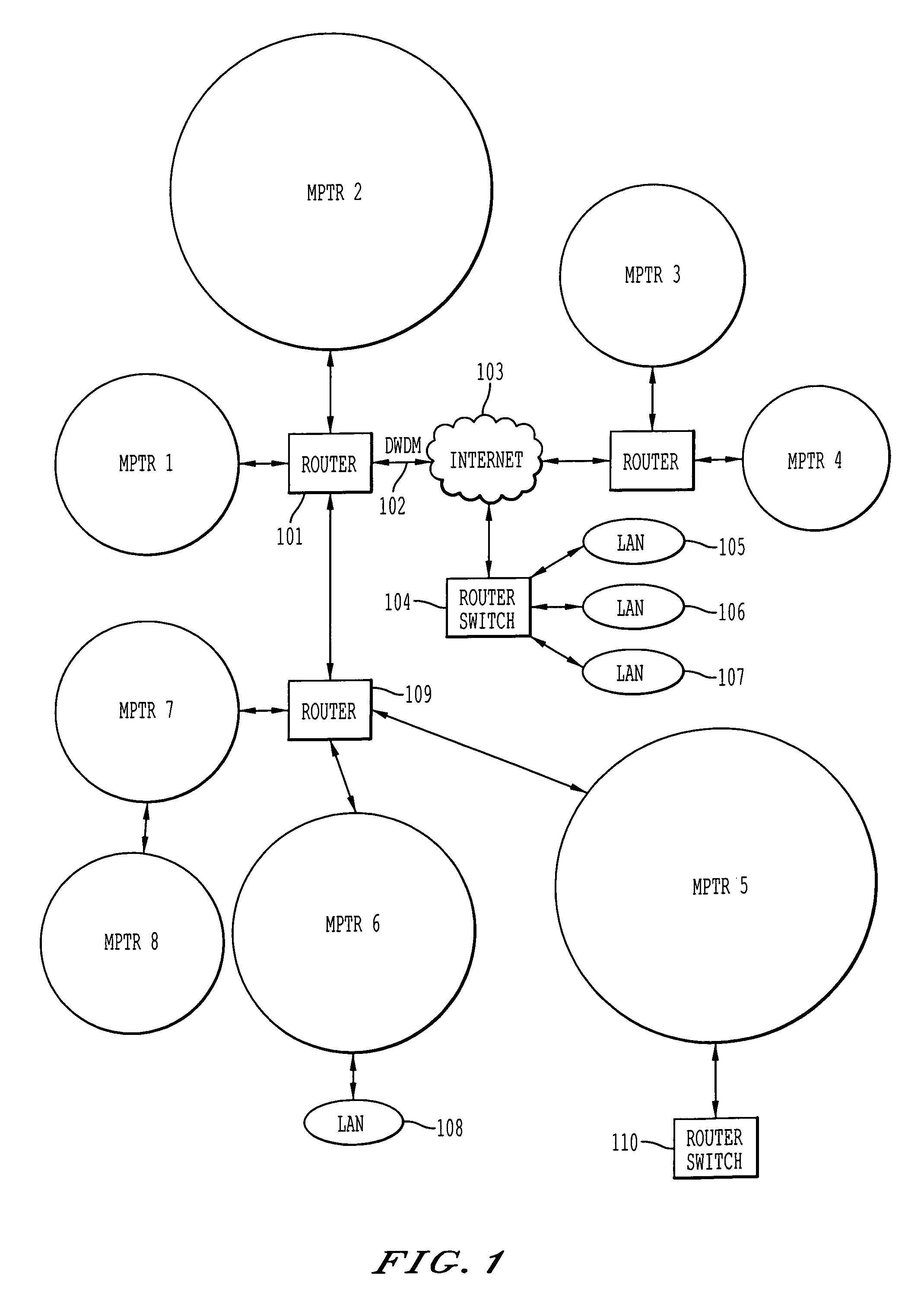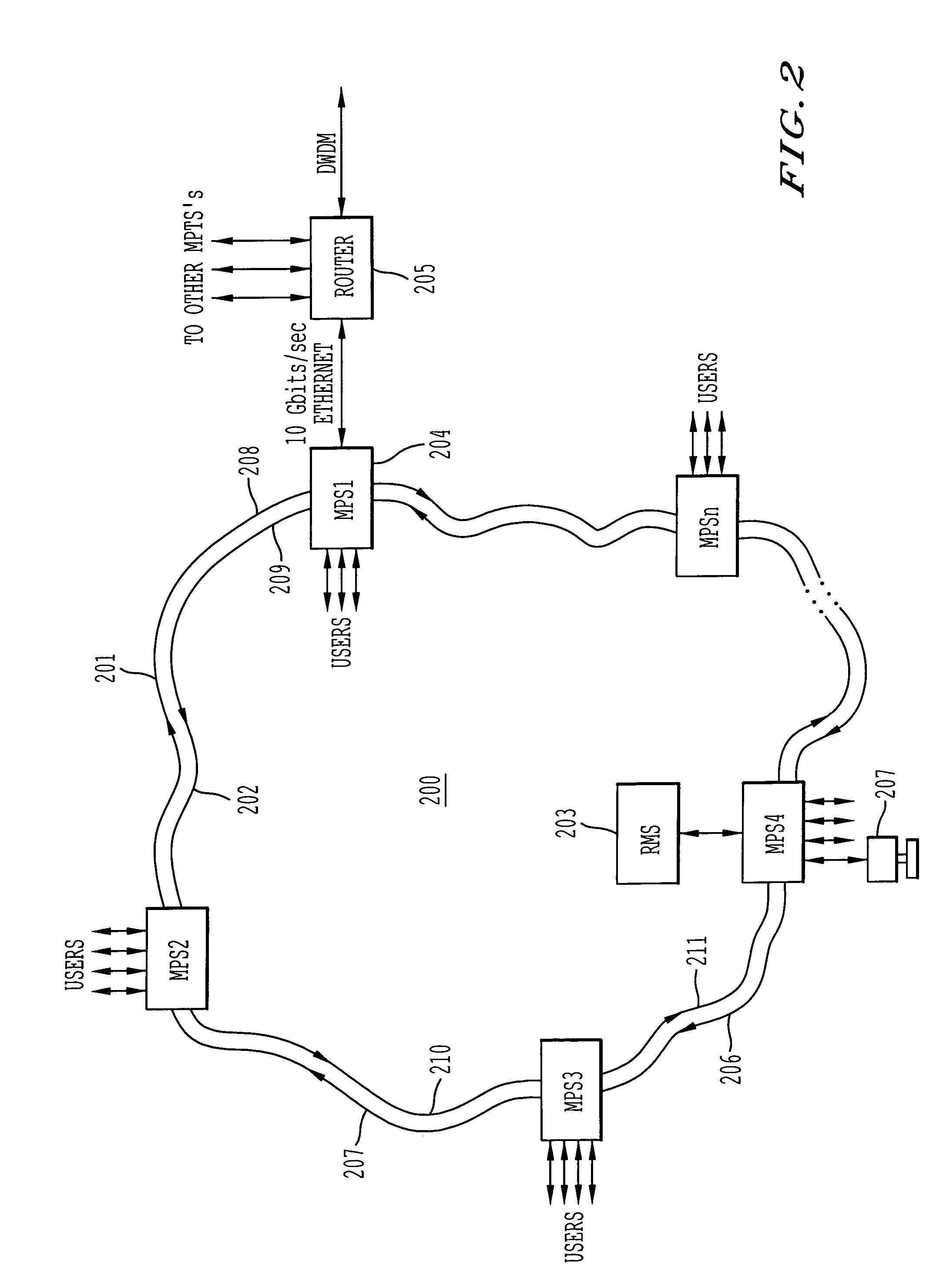Per-flow rate control for an asynchronous metro packet transport ring
a technology of per-flow rate control and asynchronous data packets, applied in data switching networks, frequency-division multiplexes, instruments, etc., can solve the problems of ineffective entrance or exit ramps, high uncertainty, and limited internet activities, and achieve the effect of ensuring the processing overhead associated
- Summary
- Abstract
- Description
- Claims
- Application Information
AI Technical Summary
Benefits of technology
Problems solved by technology
Method used
Image
Examples
Embodiment Construction
[0021]An asynchronous metro packet transport ring network is described. In the following description, for purposes of explanation, numerous specific details are set forth in order to provide a thorough understanding of the present invention. It will be obvious, however, to one skilled in the art that the present invention may be practiced without these specific details. In other instances, well-known structures and devices are shown in block diagram form in order to avoid obscuring the present invention.
[0022]FIG. 1 shows the overall architecture of the asynchronous metro packet transport ring network according to the currently preferred embodiment of the present invention. A metropolitan packet transport ring (MPTR) consists of a loop which is laid to transmit data packets in a metropolitan area network (MAN). A MAN is a backbone network which spans a geographical metropolitan area. Typically, telephone companies, cable companies, and other telecommunications providers supply MAN s...
PUM
 Login to View More
Login to View More Abstract
Description
Claims
Application Information
 Login to View More
Login to View More - R&D
- Intellectual Property
- Life Sciences
- Materials
- Tech Scout
- Unparalleled Data Quality
- Higher Quality Content
- 60% Fewer Hallucinations
Browse by: Latest US Patents, China's latest patents, Technical Efficacy Thesaurus, Application Domain, Technology Topic, Popular Technical Reports.
© 2025 PatSnap. All rights reserved.Legal|Privacy policy|Modern Slavery Act Transparency Statement|Sitemap|About US| Contact US: help@patsnap.com



